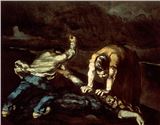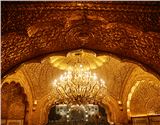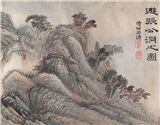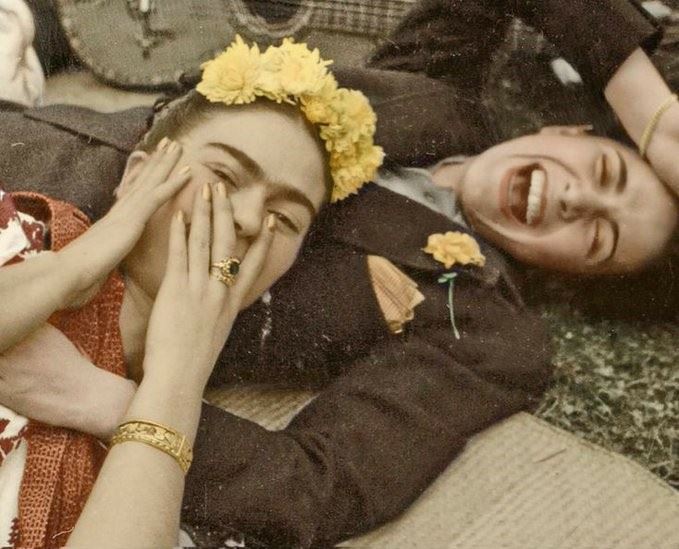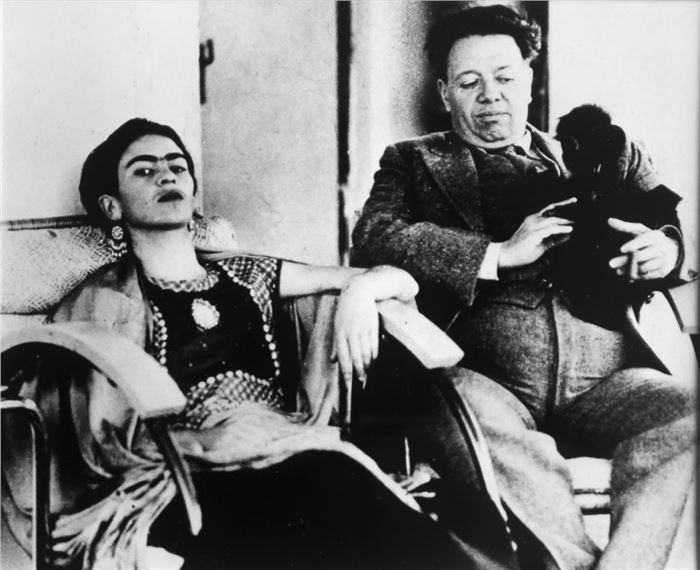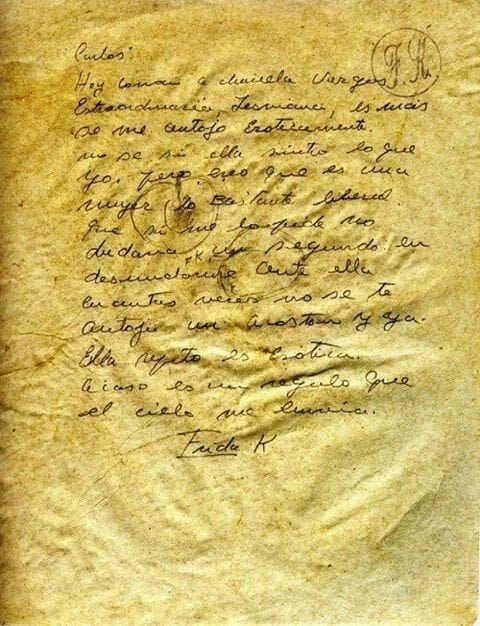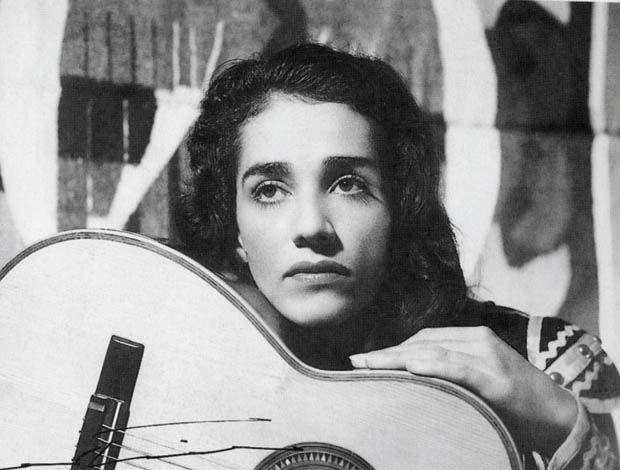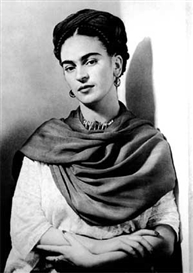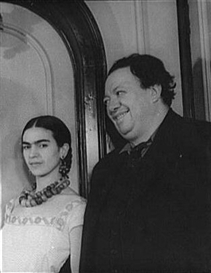The Weeping Women: Frida Kahlo and Chavela Vargas’ Cursed Love Affair
A short-lived love affair between the married Kahlo and the Costa Rican singer left behind traces of an intense romance
Benjamin Blake Evemy / MutualArt
Nov 25, 2022
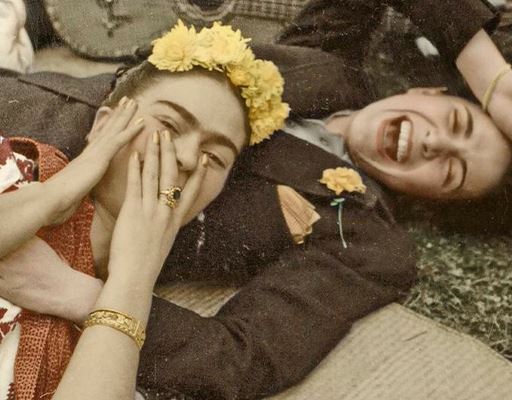
Being one of Mexico’s most prolific and revered artists, it is no secret that Frida Kahlo’s life was rife with emotional anguish and profound physical suffering. She was impaled through her pelvis by an iron handrail during a bus accident when she was eighteen years old, its excruciating implications doomed to reverberate throughout her life, and her turbulent marriage to muralist Diego Rivera would wound Frida on an emotional level. It is also no secret that the visionary painter enjoyed many lovers – both men and women, many being of high social status. But one lover that is lesser known was Chavela Vargas, an exceptionally talented young singer twelve years her junior, who would go on to record one of the most hauntingly beautiful renditions of the Mexican folk song La Llorona. While always the source of speculation and gossip, it wasn’t until long-lost letters were discovered after Vargas’ death that more light was shed upon her fervent but short-lived affair with Kahlo.
One of the few known photographs of Frida Kahlo and Chavela Vargas together (colorized). Unknown photographer (possibly Diego Rivera).
Kahlo and Vargas’ romance blossomed sometime in the early 1940s during Frida’s marriage to Rivera, and Chavela’s legendary stretch between arriving in Mexico and gaining professional status as a singer. Born Isabel Vargas Lizano in Costa Rica in 1919, her parents divorced when she was young, leaving her in the care of an uncle. She also contracted polio. At age seventeen, Chavela – a pet name for Isabel – fled the difficulties of her childhood and lack of musical opportunities that her birth country presented her and came to Mexico. She sang on the sun-kissed streets for many years, drinking heavily, dressing in men’s clothing, smoking cigars, and carrying a gun. But despite Vargas’ unquestionable talent and unwavering dedication, it wasn’t until the singer was in her thirties that she would finally find herself enjoying professional success.
The setting where Vargas would first meet Kahlo and Rivera was one of the many parties the couple would throw at La Casa Azul – Kahlo’s childhood home, and what is now the Frida Kahlo Museum, in Coyoacán, Mexico City. Being prolific entertainers, the parties the pair would host were well-known in certain circles for their extravagance. In the documentary Chavela, released in 2017, Vargas reflected upon the fateful night she first met Frida:
“A painter friend invited me. She said: ‘There’s a party at Frida’s house tonight. Shall we go?’ I went and the atmosphere was full of people. The night passed, we sang, everyone danced, everyone entertained…I was in a daze when I saw her face, her eyes. I thought she couldn’t be a being from this world. Her eyebrows together were a swallow in flight. Without yet having the maturity of a woman in me, since I was a very young girl, I sensed that I could love that being with the most devoted love in the world, the strongest love in the world.”
Frida Kahlo and Diego Rivera with pet monkey Fulang-Chang, c. 1940. Unknown photographer.
In later years Chavela claimed to have destroyed all of the letters that she had received from Frida during their whirlwind love affair. But Kahlo had also written to others about their relationship, including modernist Mexican poet, Carlos Pellicer:
“Today I met Chavela Vargas. Extraordinary, lesbian, what’s more, I wanted her erotically. I don’t know if she felt what I did. But I think she’s a liberal enough woman, that if she asks me, I wouldn’t hesitate for a second to undress in front of her. How many times do you not want to get laid and that’s it? She, I repeat, is erotic. Is it a gift that heaven sends me?”
Frida Kahlo’s letter to Carlos Pellicer expressing her profound desire for Chavela Vargas.
The letter to Pellicer was written a short time before Chavela went to live with Frida and Diego at La Casa Azul. Vargas expressed in a recently discovered letter that she felt extremely happy and in love, a love also reciprocated by Frida during her time at La Casa Azul:
“She taught me a lot of things and I learned so much. Without giving away too much, I held the sky with my hands, with every word, every morning.”
Vargas herself confessed that the romance was a short-lived one due to the fact that she had to share Frida with her muralist husband. She spoke of the matter once again in the documentary Chavela:
“My words possibly hurt her a lot when I told her I was leaving, and she told me: ‘I know. It is impossible to tie you to anybody’s life. I can’t tie you to my crutches or to my bed. Go away!’ And one day I opened the door and didn’t come back.”
Chavela Vargas. Unknown photographer.
The romance between Frida Kahlo and Chavela Vargas blazed with a fervent intensity, cursed to be fleeting and short-lived, to burn out like a falling star in the sultry Mexican night. For all the turmoil in Kahlo and Rivera’s marriage, Frida would end up standing by her husband, refusing to fight to save the love she shared with the young singer, leaving Vargas in the throes of a lovelorn misery. Perhaps Vargas had misinterpreted Kahlo’s lust for love, and there was nothing deeper to be found than instinctual attraction on the painter’s part. Though, if there is any doubt to be had regarding Chavela’s sincerity of feelings toward Frida, one only has to listen to her 1961 recording of La Llorona, which the singer dedicated to the painter. Possessing a sorrowful fragility, it serves as a fitting lament to her lost love. And the pain didn’t fade with time. In later recordings of the song, the anguish in Chavela’s voice is as obvious as an open wound as she howls out: “Si ya te eh dado mi vida Llorona. ¿Que mas quieres? ¡¿Quieres mas!?...”
“If I have already given you my life, weeping woman, What else do you want? Do you want more!?...”
For more on auctions, exhibitions, and current trends, visit our Magazine Page


